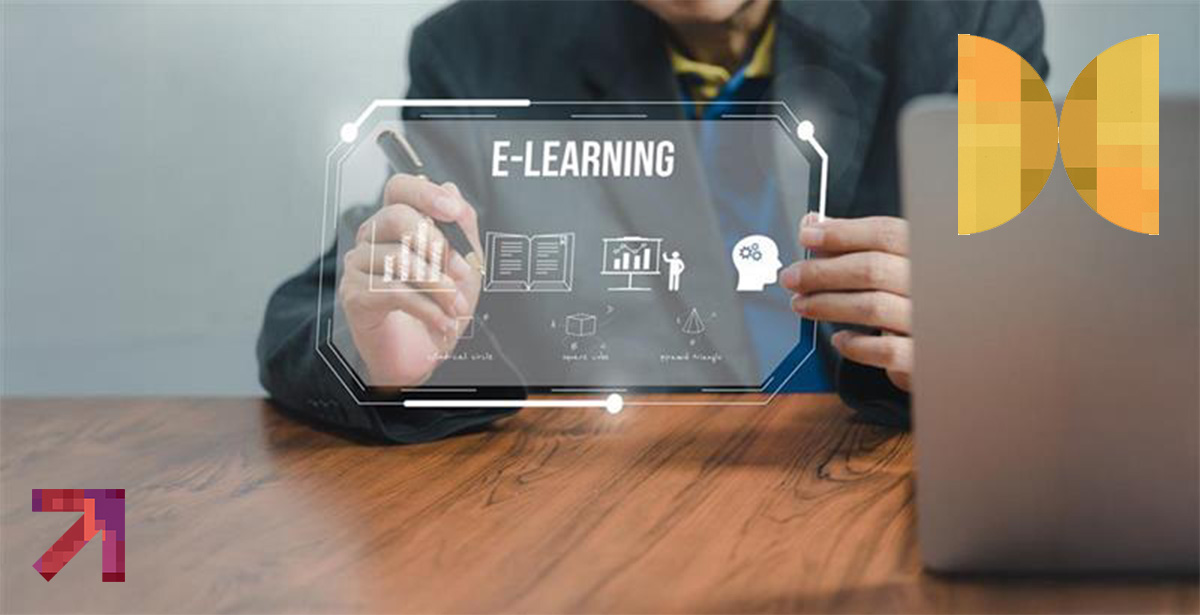Custom e-Learning Software Development or Platform-Based Solutions?

With the choice to go for e-Learning software development comes the question – should you build a custom solution tailored to your goals, or use a platform-based tool that gets the job done faster?
Both options have their strengths, but it’s up to you to decide which ones matter the most for you. Especially if you wish to claim your share in a global market valued at $259.21 billion in 2024 and growing at a CAGR of 14.2%. till 2033.
💡 If you’re a Saudi educational institute, this guide is a must read. Vision 2030 has increased the e-Learning industry’s potential revenue to $3,678 million come 2026. So, don’t miss on the opportunities currently and widely available.
But First, What are Custom and Platform-based eLearning Solutions?
Custom eLearning software is built from the ground up to meet your organization’s specific needs. Whether it’s designing interactive modules or aligning with your brand and learning goals, everything is tailored.
That way, you can create a learning experience that’s uniquely yours and reflective of your brand.
On the other hand, platform-based software is more like pre-built systems or SaaS tools. Moodle, TalentLMS, Teachable, and similar platforms offer ready-to-use templates, standard features (e.g. quizzes), and easy setup.
Choosing Between Custom e-Learning Software Development and Learning Platforms
It’s time to help you pick a solution that actually fits your training goals, budget, and future growth. For that, you need to base your decision on eight factors:
- Customization and Flexibility
- Speed of Deployment
- Cost
- Value for Money
- Ownership and Control
- Integration with Older Systems
- Scalability and Future-Proofing
- Maintenance and Support
Customization and Flexibility
Like any custom software applications, custom e-Learning software is fully tailored to its owner’s needs. In addition to functionality, developers and UI/UX designers will take care of branding, user interface, and functionality.
Custom e-Learning apps also mean you get to design features for specific roles, compliance needs, or learning objectives.
On the other hand, you’ll be limited to a platform’s built-in features and design templates. While some allow minor customization such as logo and color scheme, changes to functionality or user experience often aren’t possible without extra plugins or workarounds.
Speed of Deployment
Opting for custom e-learning software development services means dedicating weeks to the process. This can extend to months depending on your application’s complexity.
If speed is your biggest concern, platform-based solutions may be a better choice. You’ll be live in hours or a few days at most, ensuring quicker access to your materials. This option is also recommended for businesses that wish to test an MVP before scaling.
Cost
If you’re thinking of cost alone, e-Learning platforms win this point. These solutions come with a lower initial cost and are usually subscription-based. So, they’re great for smaller budgets or short-term needs.
Alternatively, e-Learning software development requires higher upfront investment due to design, development, and ongoing maintenance.
💡 The time and cost invested in custom e-learning platform development can vary based on the approach your tech partner follows. So, before signing the dotted line, make sure you understand what software development approaches are out there, and which one is best for your project.
Value for Money
The value you get from your choice will be very different. For custom eLearning software, the upfront cost is higher, but you’ll get excellent long-term value. This is especially true if you have unique training needs, plan to scale, or require deep integrations.
Your institution/organization will get to avoid bloated features, ongoing license fees, and other issues that cost you extra. And your tailored investment will outperform off-the-shelf tools in both performance and ROI.
As for the value offered by platform-based solutions, it’s great if you have a small budget or want a predictable monthly cost.
However, as your needs grow, you may hit limitations that require costly add-ons or even a future migration to a custom solution. These can chip away at long-term value.
Ownership and Control
If ownership is a must for you, you’ll need to go the custom way. With this option, you own the software and data. You also get to decide how it’s hosted, who accesses it, and how it evolves over time.
On the other hand, platform-based solutions will tie you to their infrastructure and roadmap. Your data will be stored on their servers, and you’ll be limited to their support terms and feature rollouts. This further means additional due diligence to ensure the platform meets compliance regulations.
Integration with Older Systems
Custom e-Learning software development ensures more than just your platform’s compatibility with the learning development software used to design your courses.
It ensures seamless integration with internal tools like CRM or ERP systems. You can also add APIs and single sign-on (SSO) as needed.
Now this doesn’t mean that integration in the alternative isn’t possible. It just means you’ll be relying on the vendor’s supported plugins or API access. And these may be limited and require additional fees or middleware.
Scalability and Future-Proofing
Custom eLearning is designed to grow alongside your organization. Whether you need to add new features, onboard more users, or expand your content library, you’re in full control. You build what you need, when you need it.
Platform-based solutions, on the other hand, come with built-in limits. Your ability to scale is often tied to pricing tiers or feature restrictions.
As your training needs evolve, you may find yourself boxed in and eventually forced to migrate to a custom solution to keep up with growth.
Maintenance and Support
With custom e-learning software development, you’re in the driver’s seat. You control every update, improvement, and feature rollout.
That said, control comes with ample responsibility. Your development team will need to take on bug fixes, server maintenance, and ongoing support. So, your relationship won’t be a short-term one.
Let’s make sure you get the right tech partner. Know everything there is to outsourcing development to get your money’s worth and more.
Meanwhile, platforms like Moodle offer a more hands-off experience. They’ll take care of everything behind the scenes.
Just remember that you’ll be trading some flexibility for convenience. And this can be a smart move if you don’t have in-house technical support.
Wrapping Up
When it comes to custom vs. platform-based eLearning, there’s no one-size-fits-all answer. The right choice depends on your goals, budget, timeline, and internal capabilities.
If you need full flexibility, deep integration, and long-term scalability, custom development is worth the investment.
But if speed, simplicity, and lower upfront costs are your top priorities, a platform-based solution can get you moving fast.
If you opt for custom e-Learning software development though, we can help. DPL has the expertise and experience working with organizations and educational institutions across Saudi Arabia and the United States.
So, whether you need a learning management system or education portal development services, simply fill the form below.





